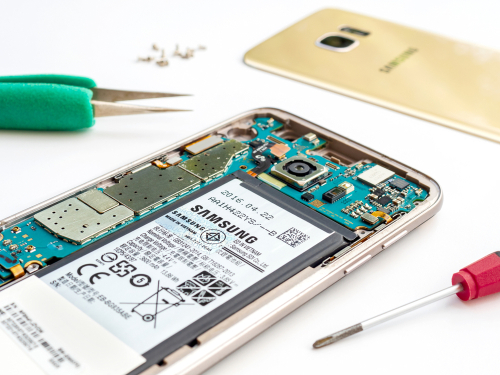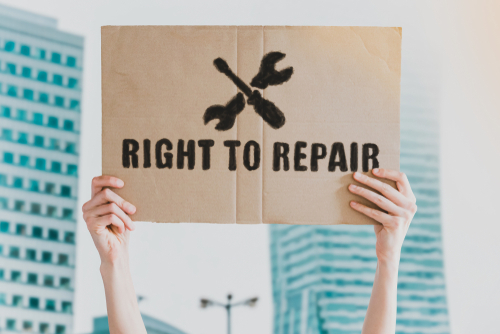Physical Address
304 North Cardinal St.
Dorchester Center, MA 02124
Physical Address
304 North Cardinal St.
Dorchester Center, MA 02124

Self-repair company iFixit has scrapped its two-year-old Samsung Repair Hub because it “consistently faced obstacles that made us doubt Samsung’s commitment to making repair more accessible”.
The Samsung Repair Hub aimed to provide local independent repair businesses with tools and parts to repair Galaxy devices
Samsung UK says iFixit’s announcement is specific to Samsung US. In the UK, it uses different suppliers to supports parts distribution and its self-repair programme.
“Our UK partnerships remain in place and Samsung UK customers will not be affected” Samsung stated.
IFixit stated: “We still think true upcycling of old phones is a great idea—but we don’t trust Samsung to deliver. We couldn’t get parts to local repair shops at prices and quantities that made business sense. The parts prices were so costly that many consumers opted to replace their devices rather than repair them. And the design of Samsung’s Galaxy devices remained frustratingly glued together, forcing us to sell batteries and screens in pre-glued bundles that increased the cost

“It’s with a heavy wrench that we have decided to end our partnership with Samsung Despite a huge amount of effort, Samsung’s approach to repairability does not align with our mission”.
The decision means iFixit will no longer be Samsung’s designated third-party parts and tools distributor and it will no longer collaborate directly with Samsung to develop new manuals
iFixit will continue to sell parts and repair fix kits for Samsung devices, sourcing OEM parts when available.
It added in a news release: “Though we are sad that Samsung isn’t coming along, we’re continuing our march into a more-repairable future. We’re shipping more parts to people all over the world, expanding awareness of third-party repair, and proving to manufacturers repair is good business.
“The tide is shifting in favour of more repairable gadgets and our other partnerships have been fruitful. Independent repair businesses are the lifeblood of our economy, but monopolisation has driven small repair businesses out of the market.
“Some companies hinder repair by blocking the distribution of essential parts and tools,
“Some companies hinder repair by blocking the distribution of essential parts and tools, requiring proprietary software to complete repairs, insisting on suffocating contracts, requiring expensive certifications, and pricing out the competition. This makes repairs cost more and take longer, and we won’t abide by unfriendly repair practices.

“Despite skepticism from the repair community, we tried to work with Samsung to create repair documentation for a few initial devices. However, flashy press releases and ambitious initiatives don’t mean much without follow-through. We’ve been through this with Samsung before with Galaxy Upcycling, the amazing device reuse idea that we helped them announce. Then they ghosted us and never released it.
“We clearly didn’t learn our lesson the first time, and two years ago we let them convince us they were serious about embracing repair.
We tried to make this work. Gosh, we tried. But with such divergent priorities, we’re no longer able to proceed. So what does that mean for our community?
“As Samsung phones are popular devices, we’ve tried to cover them with our in-house repair guides. But as the devices continued to decline in repairability, it made less and less sense. Having repair guides is a crucial part of repairability, but if Samsung is just profiting from unpaid work, do they really deserve that credit? As Right to Repair laws take effect this summer, we will be helping more manufacturers roll out repair solutions for their products”.